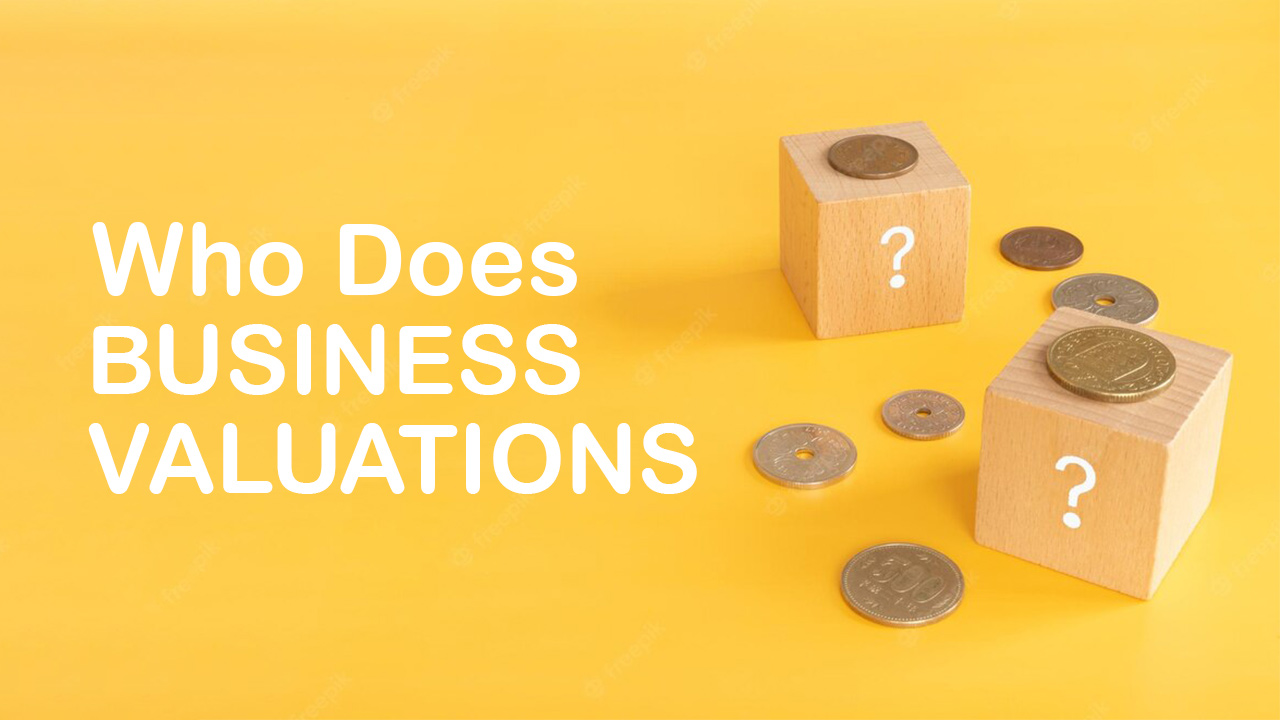Before you buy a business, sell a business, or even invest in one, you need to know what it’s worth. That’s where business valuation comes in. But who does business valuations? What kind of expertise is needed and what methods are used? Let’s take a look at some of the basics of business valuation.
What are Business Valuation Services?
Business valuations services provide important information to potential buyers and sellers as well as investors who may be considering investing in a particular company. It helps them make informed decisions about whether they should proceed with their investment or sale/purchase decision and gives them an idea of what price they should offer/charge for their transaction.
Additionally, knowing your business’s true value can help inform future decisions such as pricing strategies and investments in new products/services. Additionally, if you plan to apply for financing from banks or other lenders, having an accurate valuation will give them more confidence in your ability to repay any loans they may extend to you.
Who Does Business Valuations?
Business valuations are typically done by certified public accountants (CPAs). CPAs have expertise in analyzing financial data, so they can help determine the value of a company based on its existing financial records. They often work with individuals or businesses that are interested in buying or selling an entire company or just part of it.
CPAs use various methods to arrive at a business’s value. These include the asset-based method, which looks at the total value of the assets owned by the company; the market approach, which assesses the value based on similar companies that have recently sold; and the income approach, which focuses on how much cash flow is generated by the company. Depending on the purpose for doing the valuation, different approaches may be used for different businesses.
Can a Business Valuation Be Negative?
Yes, a business valuation can be negative – and this could happen for a variety of reasons. For example, if your company has more liabilities than assets or if your expenses exceed your revenue on an ongoing basis, then this could lead to a negative valuation. Even when you have valuable assets like intellectual property or physical equipment, they may not be worth enough to offset any existing debt or other obligations.
Another reason why a business may have a negative valuation is because of market fluctuations. If the market conditions change and the demand for certain products or services decreases drastically, then this could cause the value of your business to plunge as well. And if you’re in an industry that’s particularly vulnerable to external forces (like natural disasters or political unrest), then this could also affect its overall value negatively.
Finally, it’s important to note that some businesses may simply not be attractive investments due to their size, age, or lack of resources. In these cases, investors may decide against investing in them altogether – resulting in a negative valuation.
How to Value an E-Commerce Business?
Valuing a business can be complicated and confusing, but with the right guidance, you can determine an accurate picture of your business’s worth. Let’s dive into the different ways to value an e-commerce business.
Asset-Based Approach
The asset-based approach is the simplest way to value a business because it looks at tangible assets only. This type of valuation is typically done when the company isn’t generating any profits yet and focuses on tangible assets such as inventory, equipment, and other physical assets owned by the company.
The downside of this approach is that it doesn’t take into account intangible assets such as intellectual property rights or customer relationships which can be integral parts of an e-commerce business’s value.
Market-Based Approach
The market-based approach values a company by comparing it to similar companies in its industry that have been sold in recent transactions or IPOs (initial public offerings). This type of valuation requires extensive research as well as financial analysis of similar companies that have gone through transactions or IPOs to properly compare them against each other.
The upside is that this approach does consider intangible assets such as intellectual property rights and customer relationships which can be important factors in valuing an e-commerce business.
Income-Based Approach
The income-based approach looks at both tangible and intangible assets but also takes into account future earnings potential by looking at current and projected cash flows from operations as well as potential investments in new products/services or markets.
This type of valuation is more complex than the other two methods because there are many variables involved such as taxes, inflation, interest rates, etc., however, it provides a comprehensive view of your company’s long-term potential for growth and success. It also values intangible factors like customer loyalty which may not be taken into account with the other two approaches mentioned above.
Conclusions
Business valuations are vital tools when it comes to buying and selling businesses, making investments, and getting financing from lenders. They provide essential information that can help guide buyers and sellers to make informed decisions about their transactions. In addition, they help lenders decide whether they should extend credit to potential borrowers.
Forensic accountants are skilled professionals who perform these services using various established methods such as asset-based analysis, market comparison analysis, and income-based analysis depending on their specific needs and objectives. Ultimately, knowing who does business valuations is key when buying or selling part or all of a business or investing in one!







